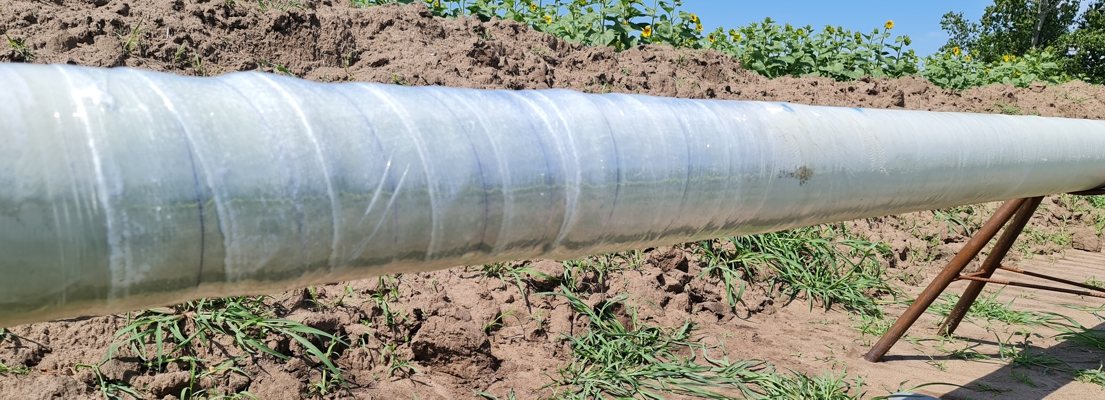
New Diisocyanate Legislation 2023 and its impact on pipe repair
The challenge of reducing water loss in face of new regulations
On August 24th 2023, new EU and UK REACH legislation came into force governing the use of any product which contains a concentration greater than 0.1% free diisocyanate. It stipulates that all users must be formerly trained on the safe application of diisocyanates before they can use such products.
Under the new rules, all users of moisture cured composite pipe repair bandages containing more than 0.1% free diisocyanate must therefore undergo extensive training before they can carry out a leak repair or pipe refurbishment application.
Although very welcome from a health and safety standpoint, the new diisocyanate regulations have had a disruptive impact on pipe repair and the ability to respond quickly and easily to leaks and bursts. This is only set to increase as the full impact of the legislation becomes felt throughout industry.
What are diisocyanates?
Diisocyanates are highly toxic. Diisocyanate particles when airborne are easily absorbed by humans, with damaging consequences for respiratory systems.
Users regularly exposed to diisocyanates are at risk of developing breathing-related conditions including asthma, rhinitis and dyspnea. Because of the danger diisocyanates pose, there has been an effort over recent years to drive them out of products. The new legislation is part of that.
Safe use of diisocyanate training
The need for diisocyanate training should be stipulated on the relevant product label. Responsibility falls upon the customer rather than the manufacturer. This means when a company now purchases pipe repair bandages in any industry, they must ensure all operators complete training before working with the product.
Training is generalised and in-depth, covering all types of products containing diisocyanates. It is time-consuming, with large elements not relevant to handling pipe repair bandages.
The training has to be repeated at regular intervals, depending on local and national requirements. Working time is lost whilst training takes place, and those users who opt for third-party online training can expect to pay between £5 and £10 per person. For companies with larger workforces, training adds a financial burden.
Diisocyanate training and pipe repair
Where the new diisocyanate regulations are having the biggest impact on pipe repair is response times. Previously, pipe repair bandages could be applied as soon as leaks were identified. Now, repairs can only be made by a trained operator.
A water company or facilities management team for example now discover a burst pipe, only for no diisocyanate trained engineers to be working that day. The pipe cannot be fixed until an approved user is available, reducing the flexibility of the workforce.
Records must be kept regarding who has been trained and consulted to ensure a user is approved and that their training is in date, increasing bureaucracy. The whole process of repairing a leak has become much more complex.
New SylWrap Low Hazard Formulation
Aware of the issues the diisocyanate legislation would cause, Sylmasta have invested heavily to reformulate their entire SylWrap range to contain below 0.1% isocyanate.
The new SylWrap Low Hazard (LH) formulation falls outside the 2023 Safe Use of Diisocyanate Regulations. It is contained within the new SylWrap LH Pipe Repair Bandage, and has also replaced the previous formulation in SylWrap CR Corrosion Protection Wrap and SylShield Pipe Weld & Protection Wrap.
No training is therefore required to handle and apply any of those products, saving users from the disruption and additional costs which the legislation has introduced.
Pipes can be repaired as soon as problems are identified, enabling systems to go back into service quickly, reducing downtime and the loss of precious water.
The new LH formulation maintains very similar mechanical properties and performance to the previous formulation, including the same 2-5 minute work time and two-year shelf life from date of manufacture.
Health and safety information and symbols are no longer required on SylWrap labels because of the new formulation. The product is now safer for the operator and maintains the ease and speed of application which has made SylWrap a world-leader in pipe repair.
For more information about the new low free diisocyanate formulation of SylWrap, please contact Sylmasta via email or phone +44 (0)1444 831 459.




